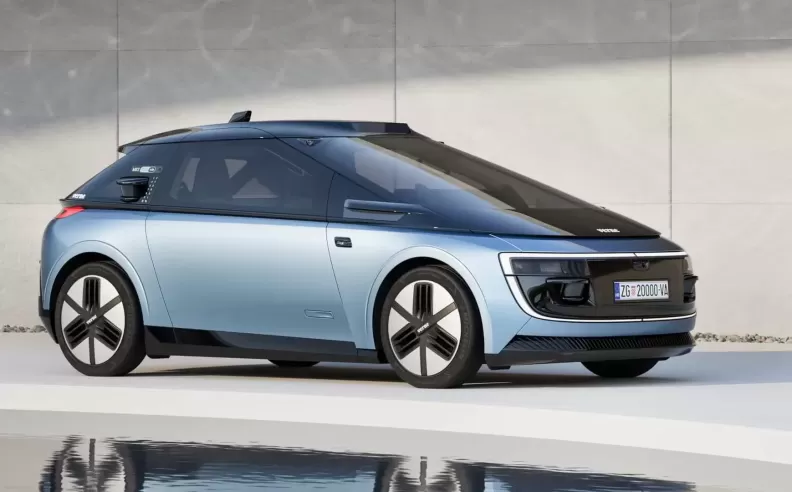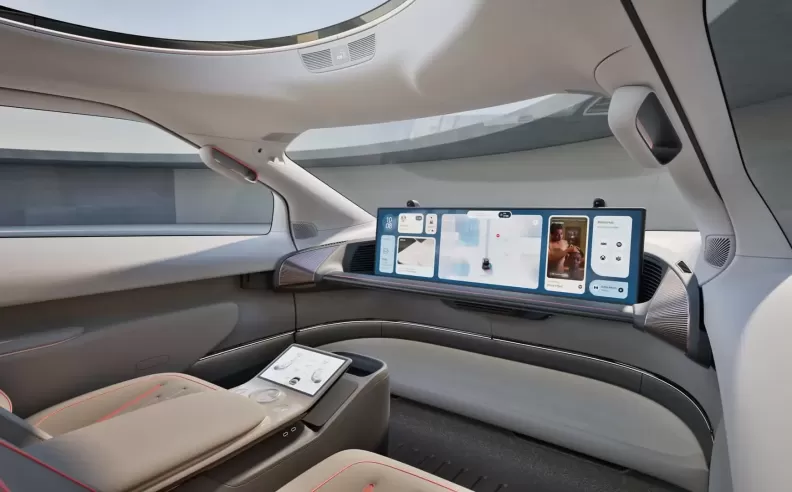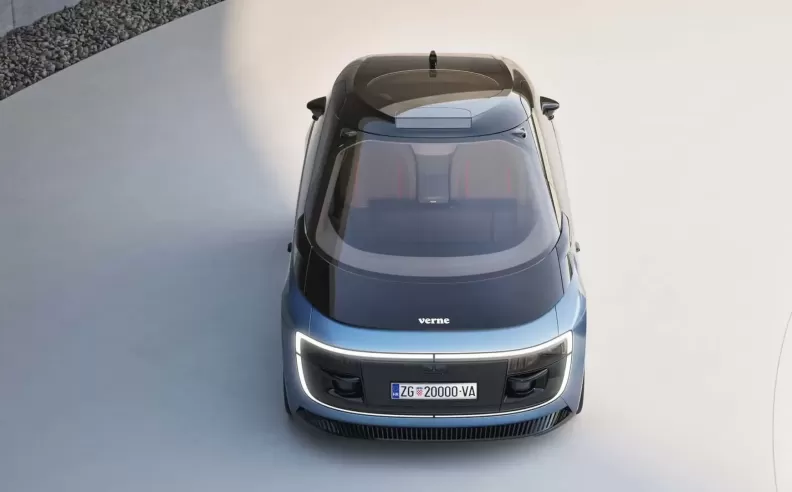
In a bold leap into the future of transportation, Mate Rimac, known for pushing the boundaries of automotive innovation, is set to launch Verne, an autonomous robotaxi service scheduled to debut in 2026. Named after the visionary author Jules Verne, whose works inspired generations with tales of adventure and exploration, Verne aims to revolutionize urban mobility with a blend of cutting-edge technology and passenger-centric design.
Verne isn't just another autonomous vehicle; it's designed to prioritize passenger comfort and control. Utilizing the Mobileye Drive platform and boasting Level 4 autonomous driving capabilities, Verne promises a seamless journey from point A to B without the need for human intervention. However, what truly sets Verne apart is its focus on enhancing the passenger experience through customizable features.
Upon summoning a Verne robotaxi via a dedicated ride-hailing app, passengers can personalize their ride before it even arrives. From setting the interior temperature, lighting, and sound to adjusting the comfort level and even choosing a preferred scent, Verne ensures that every ride is tailored to individual preferences. This level of personalization aims to create a sense of ownership and familiarity, despite passengers never owning the vehicle itself.

Verne’s design philosophy revolves around a cabin-first approach, maximizing interior space for unparalleled comfort. With more legroom than a Rolls-Royce, the vehicle accommodates two passengers comfortably, reflecting the company's insight that most taxi journeys involve small groups. The cabin features a state-of-the-art 43-inch display that serves both entertainment and informational purposes, replacing traditional controls with intuitive touchscreen interfaces.
Notably absent are steering wheels and pedals, replaced by a simple switch between seats to start and stop the ride. This minimalist interior not only enhances space but also emphasizes Verne’s autonomous nature and passenger-focused design.

Ensuring passenger safety and satisfaction is at the core of Verne's operational philosophy. Each vehicle undergoes daily servicing at Verne's "Mothership" facilities, where they are recharged, inspected, and meticulously cleaned. Built with durable materials designed for daily use, Verne vehicles are equipped with integrated cameras, radars, LIDAR systems, and self-cleaning mechanisms. This high-tech exterior design eliminates traditional driver requirements such as windshield wipers and side-view mirrors, streamlining maintenance and enhancing reliability.
Verne will debut on the streets of Zagreb in 2026, Croatia, before expanding to key markets such as the United Kingdom, Germany, and the Middle East. Plans for global expansion are underway, with the company already constructing its first production facility in Croatia. The choice of Jules Verne as the company’s namesake underscores its ambition to transport passengers not just physically but also into a future where convenience, comfort, and sustainability converge seamlessly.
Verne represents more than just a leap in autonomous vehicle technology; it embodies Mate Rimac’s vision for a future where transportation is not only efficient but also deeply personalized. By combining advanced autonomous capabilities with a focus on passenger comfort and safety, Verne aims to redefine urban mobility and set new standards for the future of transportation worldwide. As Verne prepares to embark on its maiden journey, it invites passengers to experience a ride that blends innovation with the timeless spirit of exploration.

Wael is an automotive content writer specializes in creating written content for Motor 283. Producing a wide range of content, including blog posts, articles, product descriptions, reviews, and technical guides related to cars, trucks, motorcycles, and other vehicles, with an unprecedented passion for cars, and motorcycles.
